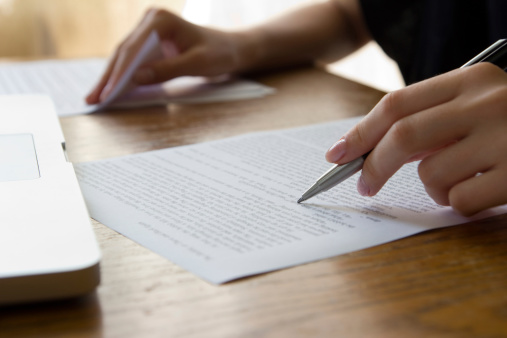This article about developmental editing appeared on the Book Country Blog. It explains the elements of a developmental edit.
What Is a Developmental Edit?

Editing can serve as something of a catchall term that can refer to anything from tinkering with semicolons to removing entire characters or plot threads. This nebulousness can make it confusing to know what you’re even asking for when you’re in search of editorial help. In an effort to make the entire undertaking less opaque—and hopefully less daunting—here are some insights into that crucial first stage in the editorial process: the developmental edit.
Fiction
Character: For fiction, character is paramount. Your characters can be lovable, flawed, complicated, even loathsome, but no matter what, you’ve got to make us care about them. Do we see their vulnerable underbellies and darkest thoughts? Or are you keeping your characters at arm’s length? Does your main character have enough nuance to keep us interested, or is he/she falling flat or being a bit too predictable in places? Does your protagonist evolve over the course of the story? Do the characters feel real? Do we feel invested in their trajectories? Developmental editors are here to make sure your readers are compelled to hang out with your characters until the very last page.
Plot, pacing, and structure: Does the story feel rushed? Are you doling out information in a way that leaves us wanting to turn the page? Or does it drag right at the moment when we want resolution? Is there enough tension? Is the lush setting or history of the time period eclipsing the main plot? Are there awkward information dumps that could be woven in more naturally? Are there any holes? Are you making any problematic leaps in logic? This can seem obvious, but if you’ve worked on numerous drafts of a book, old material may no longer make sense with more recently added material.
Style: Although a developmental edit doesn’t usually focus extensively on the line (sentence structure, repetition of words or phrases, and so on), a dev editor will point out stylistic issues. One that comes up a lot is the classic “Show, Don’t Tell” edict. Writers will often do a fabulous job of showing and then undermine their own great storytelling by telling just to make sure they got their point across. So if young Rose blushes and averts her gaze when the boy she has a crush on approaches her, you don’t need to then tell us explicitly that she felt nervous. The dev editor is there to tell you that your scene can stand on its own two feet—and if it needs extra support, your editor will suggest fixes. Your dev editor will also look at voice and tone—is your dialogue sounding genuine or stilted? Do all the characters sound the same? Does their word choice accurately reflect who they are?
Memoir
With memoir, a developmental edit can be particularly helpful, as it is sometimes difficult for writers to transform their life story into a cohesive narrative comprised of discrete scenes. How do you choose what to tell and what not to? How do you integrate crucial background information in a way that feels seamless? Perhaps most importantly, how do you nail the voice from the very first page so that the reader is drawn into your story?
Nonfiction
Nonfiction is a bit of a different beast. If you’ve written a book on finance, character development is not your primary concern, and ensuring that the plot thickens at just the right moment isn’t relevant. But a developmental editor can work other kinds of magic with nonfiction. Below are some of the most frequent issues that come up with nonfiction.
Audience: It’s imperative that you know who you’re writing for. But this can be surprisingly tricky when you’re an expert on the subject—after all, when you think about financial planning all day long, it can be hard to see what a novice might not know. A good dev editor can hone your language to make it appropriate for your target audience, using the right level of vocabulary and making the right assumptions about your readers’ background knowledge. Have you assumed a level of understanding of reverse mortgages that will leave your readers flummoxed? Your editor will be the one to point that out.
Organization: When you’re a subject-matter expert, it can be hard to see your material from an outside perspective. You’re so deeply immersed in it that it can be difficult to present your argument in a logical fashion. Who is picking up your book, and what do they hope to get out of it? Have you organized your material in such a way that each section builds on the last? Does it give enough foundational information at the outset? Or have you bogged it down with too much background before getting to your message? A developmental editor will point out the holes and ensure that there is continuity so that your readers never once furrow their eyebrows in confusion.
A good developmental editor is like some hybrid of a detective and a psychologist, sniffing out problems and proposing solutions so that you can polish and hone before putting your beloved manuscript in front of a wider audience. In short, we hope you’ll think of us as your secret weapon.
About Christina Henry de Tessan
Christina Henry de Tessan is the vice president of editorial at Girl Friday Productions, a full-service editorial firm headquartered in Seattle. Formerly of Chronicle Books and Seal Press, she’s also the author of several travel books, including Forever Paris and Expat: Women’s True Tales of Life Abroad.
via What Is a Developmental Edit? - Book Country Blog

